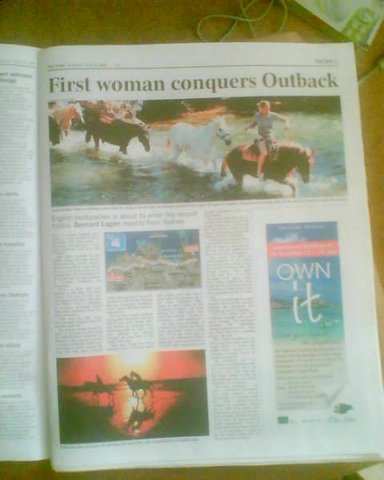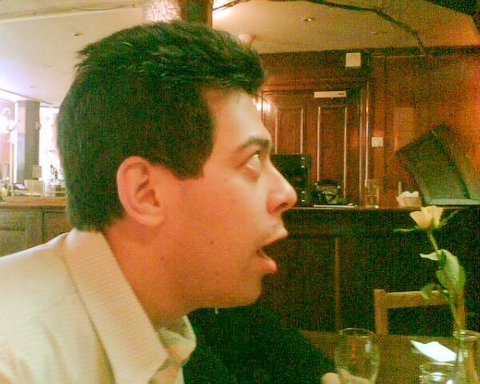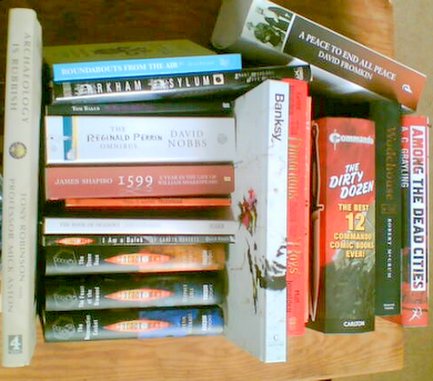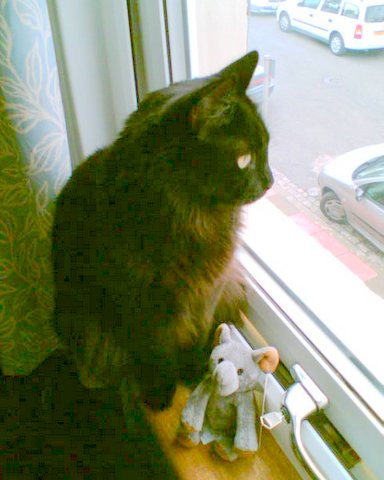Not least because it’s only those first three chapters which are about the wolf-boy Mowgli. The remainder of the book seems to be made up of other stories based on or pinched from Indian legends and experience.
I can’t help wondering how much is what he got told and how much is his own experience of India. As my dad pointed out, Kipling spent a relatively short period in the country he’s remembered as such as expert on. He was born there, yes, but returned to England aged six. Later he did a seven-year tour of duty as a journalist (where he obviously met Sirs Michael Caine and Sean Connery), and it’s this period – the same length as a doctor’s training – that provided the material for the rest of his career as a writer.
It’s no surprise that the book is darker, nastier and more animalistic than the bowdlerised Disney cartoon. Mowgli’s schooling by Baloo here is a neat twist on the savage law of the jungle. The jungle is full of danger and violence yet its wiser inhabitants abide by an etiquette.
The law is an ideal, not an absolute, a way of negotiating the harsh realities. It only exists where it is backed up by (the threat of) violence. So that the real law of the jungle – where power rests with the one who can kill his adversaries – is always glimpsed underneath.
There are those who flout the law – the tiger Shere Khan and his allies because they are building their own empires, the monkeys because they’re too reckless. And this lawlessness makes things unpredictable and dangerous, and threatens to overturn everyone.
These are complex relationships, and any plan of action requires involved negotiation. Any alliance is made warily.
Mowgli spends his time cut and bruised all over, taking tumbles that we’re told would kill any other child. It reminded me a great deal of Tarzan (written 12 years later) – at least, it reminded me of the film Greystoke, because I’ve not read the book.
Chapter 1 starts with Mowgli being found by a family of wolves, who bring him up as their own just to spite the miserly tiger. Having had him accepted by the rest of the pack (and sponsored by a bear and a panther), and just got the story started, we then just skip to the end.
“Now you must be content to skip ten or eleven whole years, and only guess at all the wonderful life that Mowgli led among the wolves, because if it were written out it would fill ever so many books.”
Rudyard Kipling, The Jungle Book, p. 22.
Kipling’s not really got the hang of the freelance thing yet if he’s pointing out to his readers that there’s probably more in this. (Says someone who’s only just pitched a rejected novel synopsis to someone else as a short story.)Anyway, Shere Khan and his allies challenge the wolf leadership and win, but Mowgli stops them from killing Akela by threatening them all with fire. Then, because the use of fire means he has chosen the way of men over the jungle, he goes off to the local village. The end, it seems.
Chapter 2 jumps back a bit, recalling an episode from Mowgli’s schooling. It’s a valuable lesson in obeying his godparents and not playing with the naughty kids from down the street. Ignoring the warnings about what monkeys are like, Mowgli soon finds himself being carried off into the trees. The monkeys are dangerous not because they’re evil but because they are reckless and silly. They cannot hold an idea in their heads for more than five minutes.
In this anthropomorphic society, I wondered who the monkeys were based on – Unruly children? Those who do not attend to their school books? As the monkeys sit about the ruins of once-great buildings, unable to appreciate the grandeur around them let alone being able to reclaim it, I wondered if there wasn’t something more distastefully imperial going on, and these wild, silly creatures were some version of Kipling’s own dealings with native Indians.
More surprising is how Mowgli escapes his predicament – there’s no merry king of the swingers here. Instead, Baloo and Bagheera make an unlikely alliance with the cunning python, Kaa.
Together, these three amigos fight off the monkeys in a battle that’s hard-won and nasty. It nearly all goes pear shaped, with monkey reinforcements on their way and Bagheera hiding in a pond. But then Kaa hypnotises all the monkeys (and nearly Mowgli and Bagheera too), and we’re left with the deeply unsettling suggestion that the entranced monkeys all file up to be eaten. It’s terrifying and surreal and vicious.
Then Mowgli needs beating for his disobedience, because “sorrow never stays punishment”. He’s left bloody and bruised all over, but takes it like a man. The end.
And it’s this weird and brutal chapter that the Disney version is based on, of course.
Chapter 3 picks up after the end of Chapter 1 with Mowgli returning to the village from which he was snatched as a baby, and to his natural mother, a rich woman called Messua. We are told his real name – Nathoo.
Mowgli (because the village take him to be a replacement for Nathoo, not necessarily Nathoo himself) learns to speak the language and to look after their cows, but he finds the men’s sleeping habits and tales of jungle beasts ridiculous and he can’t fathom the caste system or money. He doesn’t really fit in.
What’s more, the belligerent Shere Khan is stalking him. So, with the help of his old wolf chums, Mowgli stages an ambush and kills the tiger in a stampede which seems to have inspired a scene in the Lion King.
Yet the killing of Mufasa is a cowardly act, and Mowgli’s tactics hardly feel noble. He further dismays a man warrior by refusing to surrender his kill, which warrants a big reward. (The people of the village are variously superstitious, stupid and greedy.)
As a result, Mowgli is cast out of the village for being a sorcerer (and able to command the wolves). By the time we leave him, he’s settled his old scores and lived by Baloo’s law, but is an outcast from both man and beast. Perhaps this is again Kipling’s own experience of those neither wholly English not wholly Indian, so cut off from both societies.
And then it ends:
“But he was not always alone, because years afterward he became a man and married.
But that is a story for grown-ups.”
Ibid., p. 121.
And I realised I’d forgotten it was all meant for kids.(The Second Jungle Book apparently continues the story, with chapters about a much older Mowgli returning to rescue his real mum.)























